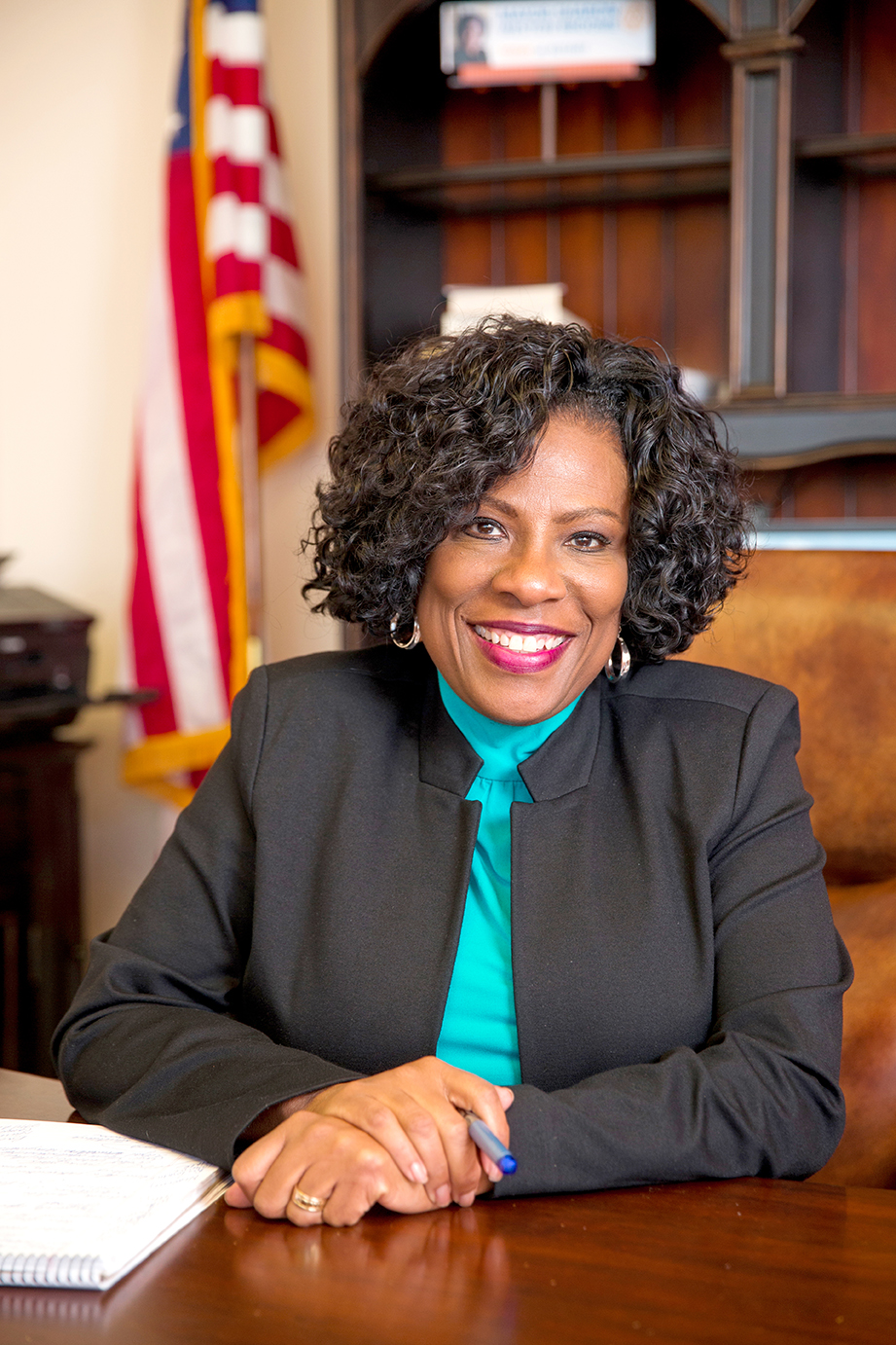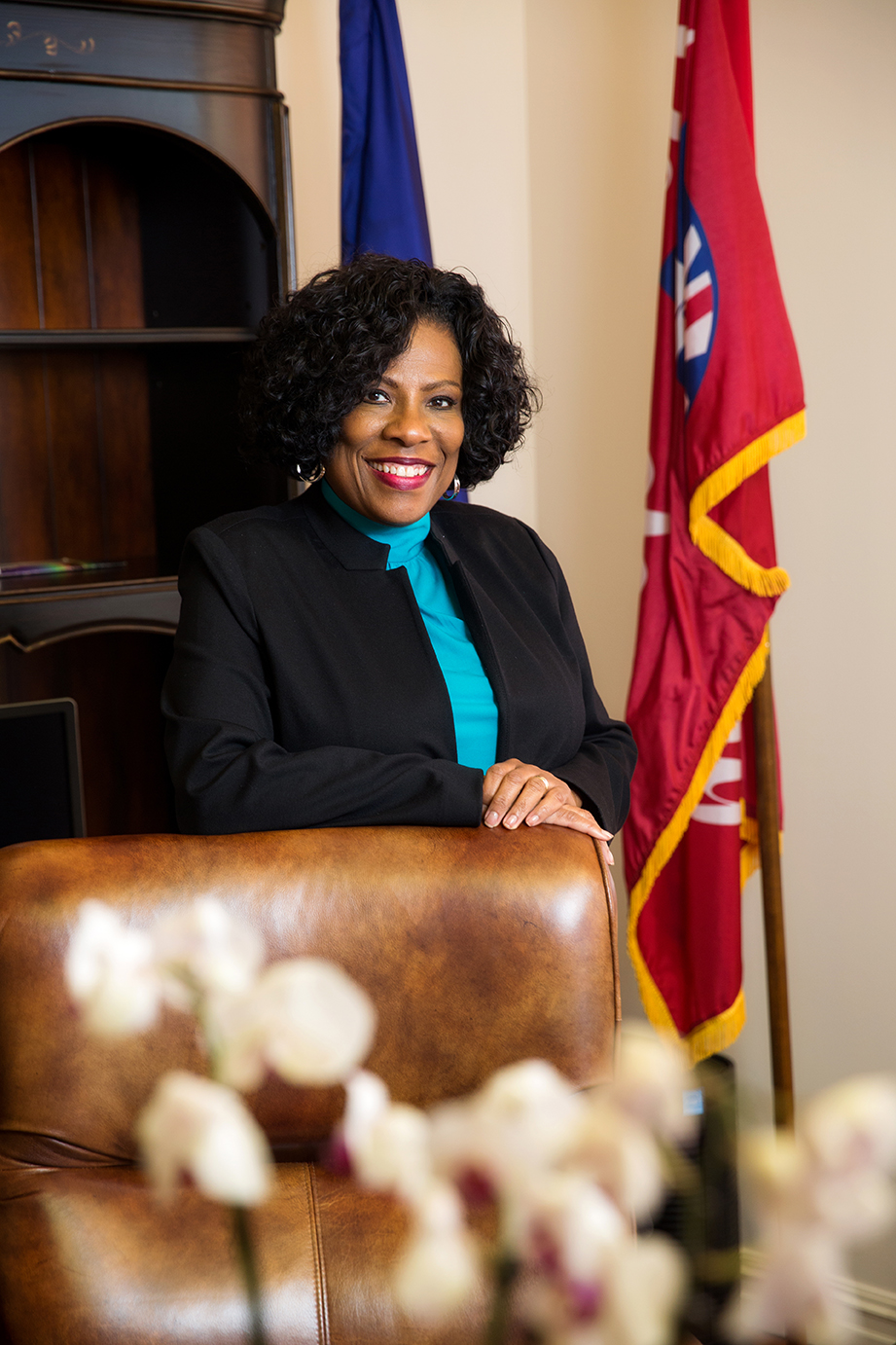
Sharon Weston Broome is eager to lead and face Baton Rouge’s challenges head-on
After a rapid-fire three-week transition, Baton Rouge Mayor-President Sharon Weston Broome took office
Jan. 2. She has promised to heal a racially and economically fractured city still recovering from historic flooding that hit the region in mid-August.
Broome, a Democrat, beat Republican State Sen. Bodi White in the Dec. 10 runoff.
She is the Capital City’s first elected woman mayor and its second African-American mayor. Her election is the culmination of decades in politics, though she says she doesn’t like the term “career politician,” favoring “public servant” instead.
|
|
“I really believe that the majority of people who run for office are doing it because they want to serve,” she says.
Broome is one of a few non-native Baton Rougeans to hold the office, a rarity in a town that has tended to favor born-and-bred locals.
Her television journalist accent carries the lilt of the Midwest; she grew up in Chicago. Her parents were Baton Rouge natives and were part of the African-American migration in the 1950s from the Deep South north along the railroad line to the Windy City. Broome moved to Baton Rouge in the late ’70s, when her aging parents came home to retire. She was in her early 20s then, and she had just graduated with a bachelor’s degree in communications.
 Even when she was a teenager, Broome’s earliest interest was in communications. She loved public speaking and holding leadership positions in high school clubs. She earned both a bachelor’s and a master’s degree in communications, eventually working in Baton Rouge as a communications consultant and as a television reporter for WBRZ. But along the way, she says, she felt “the call” to run for public office.
Even when she was a teenager, Broome’s earliest interest was in communications. She loved public speaking and holding leadership positions in high school clubs. She earned both a bachelor’s and a master’s degree in communications, eventually working in Baton Rouge as a communications consultant and as a television reporter for WBRZ. But along the way, she says, she felt “the call” to run for public office.
In 1988, Broome earned a spot on the East Baton Rouge Parish Metro Council, later winning a seat in the Louisiana House of Representatives representing District 29, which she held from 1992 to 2004. Broome served as a state senator for District 15 from 2004 to 2016, and she was among the first of a large field of candidates to announce her decision in 2015 to run for Baton Rouge mayor-president.
As the Capital City’s new mayor, Broome, 60, must navigate tricky waters—including how to heal the racial divides in a city rocked by the shooting deaths of Alton Sterling and later, three law enforcement officers. She will, of course, be the mayor on watch when the U.S. Department of Justice issues its findings sometime this year on the Sterling case and whether to prosecute the officers involved. Broome has already met with officials and community groups to work on getting ahead of possible civic discord.
“As we await the Alton Sterling decision from the Department of Justice, I certainly plan on leading a message of peace but also understanding that people [must] have an opportunity to express themselves in a peaceful way,” Broome says. “I believe that we have to always, always keep justice as a focus whenever we deal with issues like this—that justice is being served, but at the same time we have to remember this is our city. We want our city to continue to thrive and to continue to prosper.”
In early February, Broome released new policies developed with the Baton Rouge Police Department for the purpose of de-escalating violence between officers and suspects before they result in physical or deadly force. The policies include the general prohibition of chokeholds by police and a requirement that officers who witness excessive force must report it.
Police officials explained in interviews with local media that the policies have always been a part of training. Putting them into writing, however, will make it easier to hold officers accountable for their actions, they say.
Moreover, Broome has announced that she will require all of her cabinet staff members to complete diversity training through Dialogue on Race Louisiana, a nonprofit program directed by moderator Maxine Crump.
Shortly after her election, Broome assembled a 40-person transition team charged with reporting back to her on a variety of quality-of-life factors in the Capital City, including the arts, transportation, flood recovery, race relations, economic development in North Baton Rouge and the millennial agenda. This feedback will help her craft specific policies and programs, she says. When we interviewed her in mid-January, she was still hiring staff and organizing her office.
Broome says she’s interested in hearing from young people about what they need to remain in Baton Rouge as they start their careers and find their passions.
Recalling her experience as a newly minted college graduate, Broome says she never could have predicted that one day she’d want to run for Baton Rouge’s mayor.
“My own journey at that age was not easy,” Broome says. “My aspiration was to be in the media, but I worked as an administrative assistant, in a bookstore and [at] a department store while I worked on my dream job. I say this to encourage millennials: On your path to your ultimate goal, there may be some alternative paths.”
Broome says one of the projects she’s hoping to install is what she calls the Baton Rouge Revitalization Fellows Program. Selected fellows, aged 25-35, both from this area and around the country will bring their skills and interest in helping the community continue to rebuild after the August 2016 flood.
“They’ll bring energy and ideas and will become stakeholders in seeing our community continue to improve,” says Broome. “I want to be a conduit for this kind of change.”
Five things you didn’t know about Baton Rouge Mayor Sharon Weston Broome
1. She’s a pescatarian. Broome gave up eating forms of animal protein other than fish a decade ago, after she learned about mass-market farming.
2. She holds lunch dates with friends and associates all over town, frequenting spots like Serop’s Express, Boil & Roux, Capital City Grill, Ichiban, the Little Village and the soul food spot, Bayou Café. Her latest project is to find a great local veggie burger.
3. Despite years in front of the camera and in the public eye, Broome isn’t crazy about shopping, calling herself a “mission shopper” who searches for items as needed. Her guilty pleasure is white blouses.
4. Her first job out of college was as an administrative assistant for an architectural firm in Chicago. She also once worked in sales at Maison Blanche department store (formerly Goudchaux’s).
5. She loves the act of writing, keeping a journal at home and an old-school daily planner. On the first line of each day, written in tidy, slanted script, are the tasks, “Pray, read Bible, experience God.”
This article was originally published in the March 2017 issue of 225 Magazine.
|
|
|
